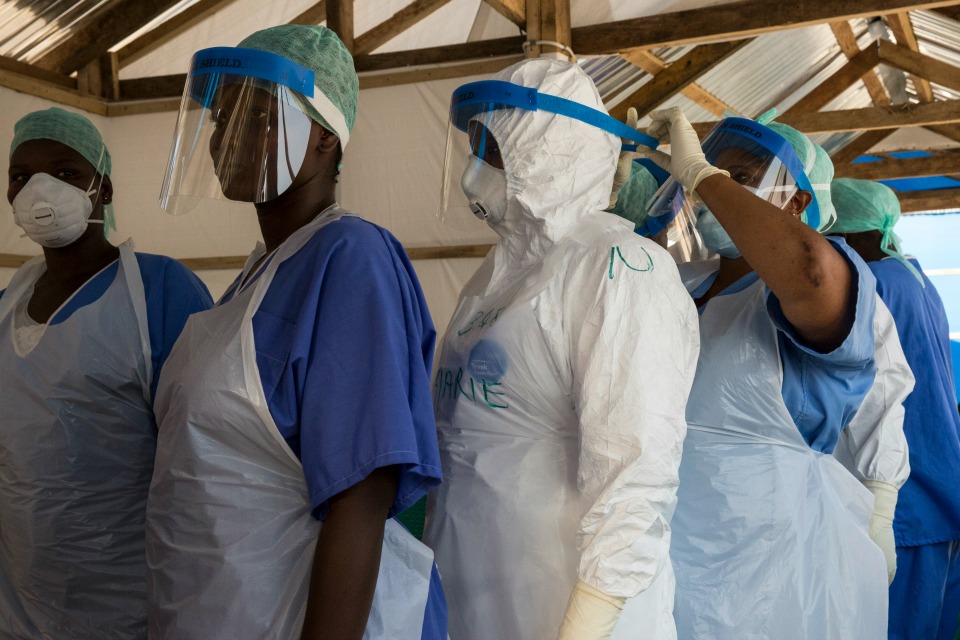"Looking ahead, there are many lessons to learn from this outbreak"
Statement by Ambassador Martin Shearman of the UK Mission to the UN at the General Assembly Informal Plenary Meeting on the Public Health Crisis Emanating from the Ebola Virus Outbreak.

Mr President,
Thank you for convening this important meeting. We are very grateful for the briefings by the Secretary-General, Special Representative Graaff and Special Envoy Nabarro.
I would like to underline the United Kingdom’s gratitude to the Special Representative and the Special Envoy and all those within the UN system, the international community and the NGO sector who have put so much effort into fighting this terrible disease.
I would like to make a particular mention of the efforts of the Governments in the region, and of the individuals from Sierra Leone, Guinea and Liberia, and those from across the continent and beyond, who have risked their lives to end this outbreak.
The work of these brave people has been extraordinary. The United Kingdom pays tribute to the sacrifice they have made in responding to this unprecedented crisis.
Mr President,
Every day we come closer to zero new cases in Sierra Leone and Guinea. However, as we have heard, we are not there yet and complacency remains a grave threat.
Recent spikes in cases have underlined that the road to zero will be bumpy. So we must continue to focus our efforts wherever the disease is found and adapt to the evolving epidemiology. We must hunt down every incident through active case finding, tracing every contact, and ensuring adherence to good practice in the community.
The United Kingdom remains absolutely committed to this effort in Sierra Leone and the region. Our overall package of support for the response and early recovery now stands at $650 million. We will stay the course.
Once we have reached zero, we must ensure that we stay there. Good surveillance systems and a capacity to respond to any new cases with agility and intensity will be vital. Vigilance will remain essential. We recognise the Secretary-General’s clear commitment to the effort both to ‘get to zero’, and to ‘stay at zero’.
Mr President,
As we get closer to the winding down of UNMEER, it is essential that the transition to the Country Team is done safely. We cannot jeopardise the crucial final stages of the response. We are reassured that a significant planning effort has been made to manage the risks around this. And where required, we support a pragmatic approach to keeping existing senior personnel in place, where they have the relationships and experience to see the response phase through.
The United Kingdom will also play its part in the recovery effort. We see the Secretary-General’s conference on 10 July as a crucial moment to ensure that the affected countries’ plans are properly supported, so that they can build back better services and make reforms needed to underpin a safe early recovery and strong, sustainable development.
In parallel, we look to the governments of the affected countries to show continued leadership and to set out how they will drive recovery while focusing on transparency and accountability. The Secretary-General’s conference will be a key moment to pledge significant financial support.
Mr President,
Looking ahead, there are many lessons to learn from this outbreak. We must ensure that similar crises are never allowed to reach such proportions. The United Kingdom therefore welcomes the establishment of the High Level Panel. We stand ready to support its work, and we look forward to a set of practicable recommendations.
We are pleased that the World Health Assembly in May agreed concrete steps to improve the World Health Organisation’s operational capacity. We support the work of the Interim Assessment Panel to advise on further WHO reforms. In parallel, we welcome the essential work to improve national preparedness and implement the International Health Regulations.
Mr President,
Let me close by recalling what we see as the three key challenges ahead. First, the political focus and flow of resources necessary to get to zero must be maintained, especially in the last stage of the outbreak. Second, the transition from UNMEER to UN Country Teams, and from response to recovery, must be seamless and coordinated. And finally, we must plan for, and achieve a safe early recovery and lay the groundwork for sustainable longer-term development.
Thank you Mr President.